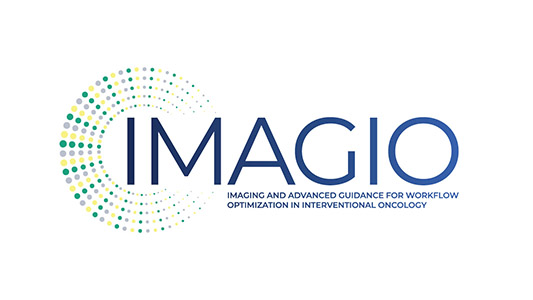Amsterdam, the Netherlands – Royal Philips today highlighted how it integrates AI in cardiac ultrasound and across cardiac care to help improve clinical confidence and increase efficiency. Center-stage at the European Society of Cardiology (ESC, Aug. 25-28, Amsterdam) Congress is the portable Philips Ultrasound Compact System 5500 CV, which includes an AI-powered automation tool (the automated strain quantification) to assess the function of the heart’s left ventricle, a key indicator of heart health.
“The demands on cardiology departments have never been higher, driving clinicians to balance the delivery of high-quality care for a growing volume of complex patients with pressures to improve departmental efficiency,” said Bert van Meurs, Executive Vice President and Chief Business Leader of Image Guided Therapy and Precision Diagnosis at Philips.
From helping sonographers acquire the right image and analyze it in the right way, to cutting the assessment time for cardiac MR and CT images, we’re integrating AI across our portfolio to help clinicians make sense of all the information available to them so that they can focus more on caring for their patients.
Bert van Meurs- Executive Vice President and Chief Business Leader of Image Guided Therapy and Precision Diagnosis at Philips
Integrating AI in cardiac ultrasound
Ultrasound is one of the most used imaging modalities as the first line of diagnosis for cardiac patients. A shortage of operators dealing with heavy workloads and growing numbers of complex cases continues to challenge health systems across the globe. Using AI to help streamline workflows and enhance diagnostic confidence is core to Philips cardiac ultrasound technology. Each year, Philips’ ultrasound systems support the diagnosis and treatment of more than 240 million patients.
Philips is a leader in integrating AI-powered technology across its cardiac ultrasound portfolio, including full 3D quantification and modeling of the heart, automated 2D Doppler and length measurements, reproducible 2D strain quantification and dynamic analysis of the mitral valve. The company is now integrating AI-powered automated analysis and reporting.
Integrating AI across cardiac care
Individually, Philips’ solutions can help solve cardiology’s daily challenges. Together, they create a powerful ecosystem that helps clinicians realize better cardiac care with greater efficiency. At ESC, Philips will also highlight its Advanced Visualization Workspace, which integrates AI-enabled algorithms and workflows into a single workspace. The integration of Cardiac MR and CT on Philips Advanced Visualization Workspace has lowered overall analysis time by 20-30% [1].
Philips monitors 1.2 million patients every year, with 4 billion heartbeat data transmissions daily [2]. Philips cardiology management solutions include remote cardiac monitoring innovations from Philips ECG Solutions, a leading AI-powered remote ambulatory cardiac monitoring provider, to better manage heart patients by extending physicians’ diagnostics and cardiac monitoring from home to hospital – and hospital to home.
Visit Philips at ESC (Hall 1, booth #A300) for more information on Philips’ entire program at the event, including a satellite symposium featuring global clinical leaders addressing some of the major challenges in peri-interventional and diagnostic echocardiography and a wide range of hands-on tutorial sessions. Follow @PhilipsLiveFrom for #ESCCongress updates throughout the event.














